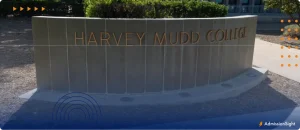Keeping track of Yale deadlines can greatly increase your chances of submitting a compelling application on time. Timing is a crucial part of the equation and is often underestimated. Your dream institution waits for no one; don’t let procrastination hinder your goals. Being well-prepared and informed about what’s ahead could set you on a course for success.
Keep reading to learn critical timelines that could be the difference between regret and a proud moment.
The Importance of the Academic Calendar
The academic calendar serves as a roadmap for your academic journey at Yale. It outlines key dates such as the start and end of each semester, course add/drop deadlines, and exam periods. Understanding these dates allows you to plan your courses, assignments, and extracurricular activities effectively.
Yale Application and Financial Aid Deadlines
For prospective students, it’s crucial to be aware of specific application and financial aid deadlines. Here are some of the vital dates to keep in mind:
- Single-Choice Early Action: November 1
- Regular Decision: January 2
- Single-Choice Early Action Financial Aid Application: November 10
- Regular Decision Financial Aid Application: February 25
By keeping track of important deadlines, you can avoid last-minute cramming, reduce stress, and maintain a healthy work-life balance. Yale’s academic calendar helps create structure, ensuring that you have ample time to prepare adequately for exams, complete assignments, and engage in co-curricular activities.
One of the significant benefits of having an academic calendar is the ability to plan your courses in advance. With a clear understanding of when each semester starts and ends, you can strategically select the classes you want to take and ensure they fit into your overall academic plan.
By considering the workload and prerequisites of each course, you can create a balanced schedule that allows you to excel academically while still having time for other commitments.
In addition to course planning, the academic calendar also plays a crucial role in managing your assignments effectively. By knowing the deadlines for each assignment, you can allocate your time accordingly and avoid the stress of last-minute submissions. This allows you to approach your coursework in a more organized and systematic manner, leading to better learning outcomes and improved overall performance.
Furthermore, the academic calendar helps you make informed decisions about extracurricular activities. By being aware of the key dates, you can assess whether you have enough time to participate in clubs, organizations, or sports teams without compromising your academic responsibilities. This not only allows you to pursue your interests and passions outside the classroom but also fosters personal growth and development.
Another advantage of the academic calendar is that it provides a sense of structure and routine. Knowing when exams are scheduled and when breaks occur allows you to plan your study periods and rest days effectively. This helps reduce stress and burnout, as you can create a balanced study schedule that includes regular breaks and time for self-care.
Moreover, the academic calendar serves as a valuable resource for students to stay updated on important university events and deadlines. It provides information about registration periods, advising sessions, and campus-wide activities. By staying informed, you can take advantage of various opportunities and make the most of your time at Yale.
In conclusion, the academic calendar, which includes crucial Yale deadlines, is an essential tool for students. It helps not just in planning courses, managing assignments, and balancing extracurricular activities but also provides structure, reduces stress, and fosters personal growth. By utilizing the academic calendar effectively, you can make the most of your academic journey and have a fulfilling experience.
How to Navigate Yale’s Academic Calendar
To navigate Yale’s academic calendar successfully, start by obtaining a copy of it. You can access the calendar on Yale’s official website or through the university’s student portal. Familiarize yourself with the different terms used, such as “shopping period,” which refers to the first two weeks of the semester when students can explore different courses before finalizing their class schedule.
During the shopping period, it is essential to attend as many classes as possible to get a sense of the course content, teaching style, and workload. This period allows students to make informed decisions about which courses to pursue, ensuring a productive and fulfilling academic experience.
Once you have decided on your courses, it is crucial to pay close attention to prerequisites and any course restrictions. Some classes may require specific prior knowledge or have limited enrollment, so it is essential to plan accordingly. By carefully reviewing these requirements, you can avoid any potential scheduling conflicts or academic setbacks.
In addition to prerequisites, it is equally important to note the important dates outlined in the academic calendar. These dates include the last day to add or drop a course without incurring a penalty. Being aware of these deadlines allows you to make informed decisions regarding your course load and ensure a smooth transition throughout the semester.
Moreover, the academic calendar also includes dates for holidays, breaks, and other significant events. It is essential to be aware of these dates to plan your academic and personal commitments effectively. Whether it’s scheduling study groups, arranging travel plans, or participating in extracurricular activities, having a comprehensive understanding of the academic calendar will help you manage your time efficiently.
Furthermore, the academic calendar may also provide information about special academic programs, guest lectures, and research opportunities, as well as important Yale deadlines. These additional opportunities can enhance your educational experience and provide valuable networking opportunities.
By exploring the academic calendar thoroughly, you can take advantage of these enriching experiences and make the most of your time at Yale.
Essential Time Management Strategies
Time management is crucial for meeting deadlines and maintaining a healthy academic and personal life. In this section, we will explore some essential time management strategies that will help you prioritize tasks effectively and make the most of your time at Yale.
Prioritizing Tasks Effectively
One of the keys to effective time management is prioritization. Start by creating a to-do list, listing all your tasks for the day or week. Assign a priority level to each task based on its importance and deadline. By identifying urgent tasks and prioritizing them, you can tackle them first, ensuring they receive the attention they deserve.
But what if you have multiple tasks with similar deadlines and importance? In such cases, consider the impact and consequences of each task. Will completing one task have a domino effect on others? Will it open up more opportunities or save you time in the long run? By taking these factors into account, you can make informed decisions about which tasks to prioritize.
Divide larger projects into manageable chunks and set aside dedicated time to work on them. Breaking them down into smaller tasks not only makes them more manageable but also prevents procrastination. By systematically working through your tasks, you can make steady progress and stay ahead of deadlines.
Furthermore, it’s important to consider your own energy levels and productivity patterns when prioritizing tasks. Are you a morning person or a night owl? Do you work better in short bursts or longer, focused sessions? By aligning your tasks with your natural rhythms, you can optimize your productivity and make the most of your time.
Utilizing Planning Tools
Fortunately, numerous digital tools and apps are available to assist with time management. Take advantage of productivity apps, such as calendar apps and task management tools, to help you stay organized. These tools can send you reminders, sync with your devices, and allow you to allocate time for studying, completing assignments, and engaging in extracurricular activities.
But remember, technology is not the only solution. While digital tools can be incredibly helpful, it’s also important to find a balance and not become overly reliant on them. Consider utilizing physical tools like planners or bullet journals to visually map out your schedule. Writing down your goals and tasks can help you stay motivated and focused. Experiment with different methods and find a system that works best for you.
Additionally, time management is not just about planning and organizing tasks. It’s also about managing your energy and well-being. Make sure to allocate time for self-care activities, exercise, and relaxation. Taking breaks and rejuvenating yourself will ultimately enhance your productivity and overall well-being.
Effective time management is a skill that can greatly benefit your academic and personal lives. By prioritizing tasks effectively, keeping track of Yale deadlines, and utilizing planning tools, you can make the most of your time at Yale and achieve your goals while maintaining a healthy work-life balance.
Developing a Consistent Study Routine
A consistent study routine is a key aspect of meeting deadlines and excelling academically at Yale. In this section, we will explore the role of a study routine in meeting deadlines and provide tips for creating a productive study routine that works for you.
The Role of a Study Routine in Meeting Deadlines
Having a consistent study routine helps establish a sense of discipline, allowing you to allocate dedicated time for studying and completing assignments. By incorporating regular study sessions into your daily or weekly schedule, you can effectively manage your workload, reduce stress, and meet deadlines.
Consistency is key when it comes to a study routine. It helps train your mind and body, making studying a habit rather than a task to be procrastinated. With a routine in place, you will be better equipped to balance your academic responsibilities alongside other commitments.
Tips for Creating a Productive Study Routine
When creating a study routine, consider your personal preferences, learning style, and energy levels. Everyone has different peak productivity times, so identify when you are most alert and focused. Designate these periods for tackling challenging subjects or important assignments.
Additionally, establish a designated study space that is comfortable, free from distractions, and conducive to learning. Minimize interruptions by turning off notifications on your electronic devices and communicating your study schedule to those around you.
Break your study sessions into manageable periods, allowing for short breaks in between to recharge. This technique, called the Pomodoro Technique, helps maintain concentration and prevent burnout.
Seeking Help When Needed
Yale offers a wealth of academic support resources to help students excel. In this section, we will explore how to effectively utilize Yale’s academic resources and the benefits of joining peer study groups.
Utilizing Yale’s Academic Resources
Yale provides various academic resources, such as tutoring services, writing centers, and subject-specific study groups. If you find yourself struggling with the material or need additional guidance, do not hesitate to seek help from professors, teaching assistants, or these academic resources.
Attending office hours, seeking clarification on challenging topics, or participating in study groups can enhance your understanding of the material and ensure that you are meeting the necessary deadlines. Remember, asking for help is a sign of strength and a proactive approach to your education.
The Benefits of Peer Study Groups
Joining a peer study group can be highly beneficial when it comes to meeting deadlines and excelling academically. Collaborating with peers allows you to discuss challenging concepts, share study materials, and gain new perspectives. Furthermore, study groups provide a support system where you can hold each other accountable for meeting deadlines and staying on track.
A word of caution: be mindful of the balance between collaboration and individual effort. While study groups are excellent for learning and mutual support, be sure to complete your individual assignments independently to uphold academic integrity.
Maintaining a Balanced Lifestyle
Achieving success at Yale is not solely about meeting deadlines and excelling academically. It is also essential to maintain a balanced lifestyle that includes proper sleep, nutrition, physical activity, and downtime. In this section, we will discuss the importance of these elements and how they contribute to overall success.
The Importance of Sleep and Nutrition
Getting sufficient sleep and following a nutritious diet have a profound impact on your academic performance and overall well-being. Adequate sleep enhances focus, learning, and memory retention, while a balanced diet fuels your brain and body.
Strive for the recommended 7-9 hours of sleep each night, and prioritize establishing a regular sleep schedule. Plan healthy, well-balanced meals, incorporating fruits, vegetables, whole grains, and lean proteins. Avoid relying on high-sugar and highly processed foods, as they can lead to energy crashes and a decline in cognitive function.
Incorporating Physical Activity and Downtime
Physical activity and downtime are essential for maintaining a healthy mind and body. Engaging in regular exercise, such as walking, cycling, or yoga, boosts energy levels, improves focus, and reduces stress. Find physical activities that you enjoy and schedule them into your routine to ensure their incorporation.
Equally important is downtime. Take breaks from your studies to relax, unwind, and engage in activities that bring you joy. This could include reading for pleasure, spending time with friends, pursuing hobbies, or even practicing mindfulness and meditation. These moments of respite rejuvenate your mind, allowing you to return to your academic responsibilities with renewed focus and energy.
Achieving success at Yale requires more than just academic excellence. By understanding Yale’s academic calendar, implementing effective time management strategies, staying aware of Yale deadlines, developing a consistent study routine, seeking academic support when needed, and maintaining a balanced lifestyle, you will be well-prepared to meet deadlines and thrive at this esteemed institution.









































